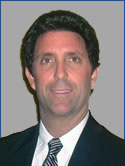BETWEEN LATE 2009 AND MARCH OF THIS YEAR, a national baked goods chain with franchises in Broward County, Florida, experienced a series of nighttime burglaries that resulted in thousands of dollars in stolen cash and damaged property. If proper reporting and advising mechanisms had been in place between the franchisor and franchisee, and proper physical security and crime prevention through environmental design (CITED) principles had been correctly applied on site, these crimes and the financial losses might never have occurred.
I am a faculty member of Florida Atlantic University. where I teach a course on CPTED. One of my students was a police officer with the Sunrise Police Department. He brought to my attention the ongoing burglaries, which he was investigating, hoping to gain insight from me on why these crimes were repeatedly occurring at sites affiliated with the same retail chain while other similar establishments in the same environs were ignored.
All of the stores that were robbed were franchises, with four of them owned by the same franchisee. Most of the stores operated from about 6 a.m. to 11 p.m., and most offered both over-the-counter and drive-up service.
All of the sites possessed burglar alarms with motion sensors and CCTV. The police investigation later deduced that the thieves were aware of the alarm systems and had actually used the knowledge to their advantage. In the weeks prior to the burglaries, after the stores were closed at night, the thieves had rattled storefronts at many of the sites they would later burgle,
creating a series of false alarms. The result was that the police took their time in responding and the franchisee feared that he would be cited and heavily fined.
In October 2009, the thieves began committing actual burglaries. Disguised with masks and gloves, they smashed the drive-through window of a store with a tire iron, climbed inside, and stole three unsecured cash boxes primed for the morning's opening with a total of about $750. No alarms sounded because the owner had instructed the closing employee not to turn on the alarm system because of the previous false alarms.
In January, one of the stores was once more broken into in the same way, and the cash boxes were stolen. The alarm system was still disabled at the franchisee's order. A second location owned by the same franchisee was burglarized twice during that month. In both of these cases, the thieves smashed the glass front door and took the cash boxes and coin, dispensers. Again, the cash was unsecured and no alarms sounded because the franchisee had ordered the system turned off.
This same pattern repeated itself again and again at other branches of the chain throughout Broward County, resulting in 21 burglaries.
During the police investigations, some store owners were not forthcoming with evidence that might have assisted police. In several cases, for example, there were no responses to requests for CCTV footage.
Ride Along
. . .Continue to read rest of article (PDF).
Randall Atlas, Ph.D., AIA, CPP, is a registered architect, NCARB certified, and he practices criminal justice architecture and environmental security design. Atlas is a certified protection professional (CPP) with the American Society of Industrial Security (ASIS), and is an appointed member of the ASIS Security Architecture and Engineering Committee.
©Copyright - All Rights Reserved
DO NOT REPRODUCE WITHOUT WRITTEN PERMISSION BY AUTHOR.










